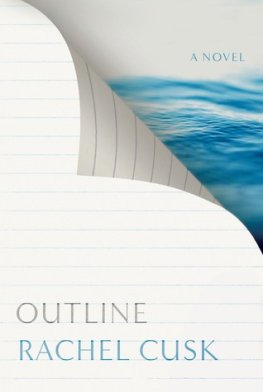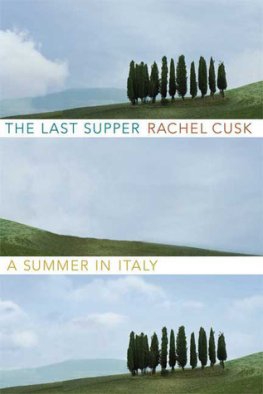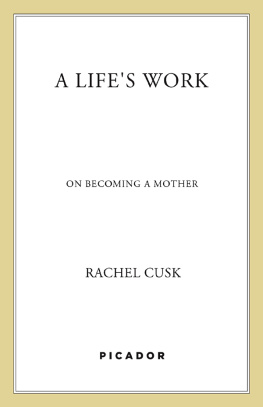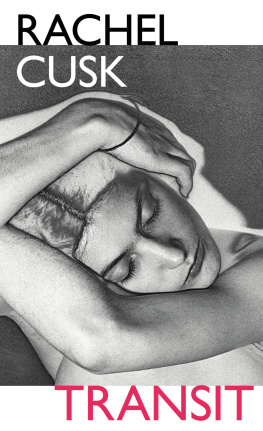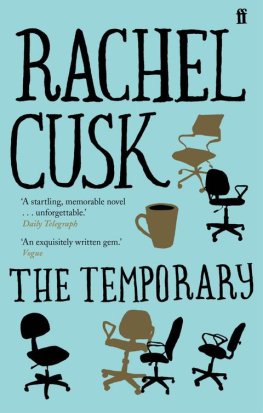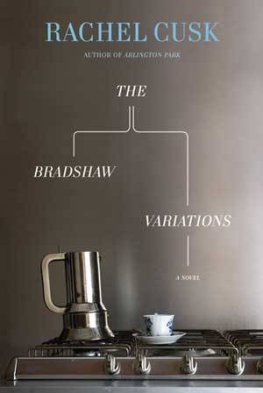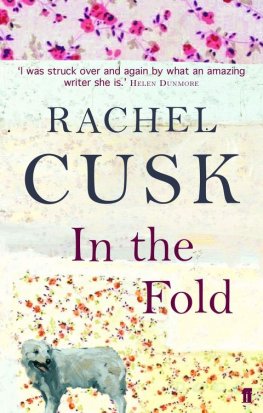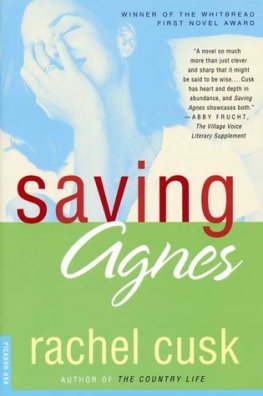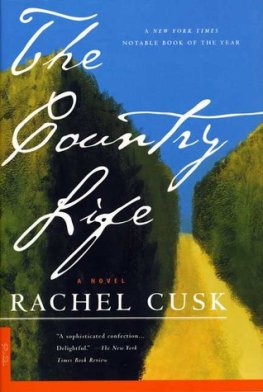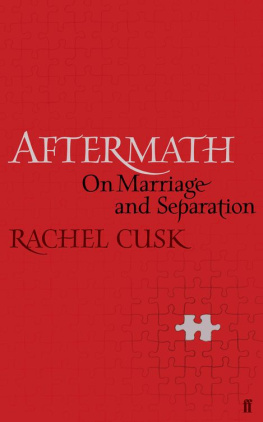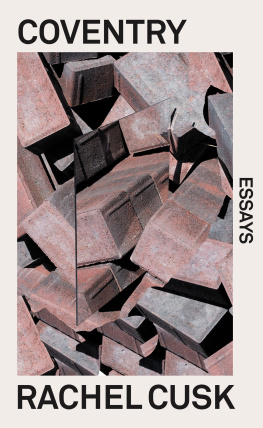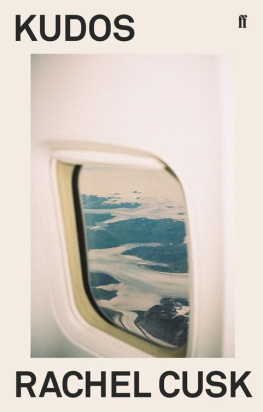Rachel Cusk
Outline: A Novel
Before the flight I was invited for lunch at a London club with a billionaire Id been promised had liberal credentials. He talked in his open-necked shirt about the new software he was developing, that could help organisations identify the employees most likely to rob and betray them in the future. We were meant to be discussing a literary magazine he was thinking of starting up: unfortunately I had to leave before we arrived at that subject. He insisted on paying for a taxi to the airport, which was useful since I was late and had a heavy suitcase.
The billionaire had been keen to give me the outline of his life story, which had begun unprepossessingly and ended obviously with him being the relaxed, well-heeled man who sat across the table from me today. I wondered whether in fact what he wanted now was to be a writer, with the literary magazine as his entre. A lot of people want to be writers: there was no reason to think you couldnt buy your way into it. This man had bought himself in, and out, of a great many things. He mentioned a scheme he was working on, to eradicate lawyers from peoples personal lives. He was also developing a blueprint for a floating wind farm big enough to accommodate the entire community of people needed to service and run it: the gigantic platform could be located far out to sea, thus removing the unsightly turbines from the stretch of coast where he was hoping to pilot the proposal and where, incidentally, he owned a house. On Sundays he played drums in a rock band, just for fun. He was expecting his eleventh child, which wasnt as bad as it sounded when you considered that he and his wife had once adopted quadruplets from Guatemala. I was finding it difficult to assimilate everything I was being told. The waitresses kept bringing more things, oysters, relishes, special wines. He was easily distracted, like a child with too many Christmas presents. But when he put me in the taxi he said, enjoy yourself in Athens, though I didnt remember telling him that was where I was going.
On the tarmac at Heathrow the planeful of people waited silently to be taken into the air. The air hostess stood in the aisle and mimed with her props as the recording played. We were strapped into our seats, a field of strangers, in a silence like the silence of a congregation while the liturgy is read. She showed us the life jacket with its little pipe, the emergency exits, the oxygen mask dangling from a length of clear tubing. She led us through the possibility of death and disaster, as the priest leads the congregation through the details of purgatory and hell; and no one jumped up to escape while there was still time. Instead we listened or half-listened, thinking about other things, as though some special hardness had been bestowed on us by this coupling of formality with doom. When the recorded voice came to the part about the oxygen masks, the hush remained unbroken: no one protested, or spoke up to disagree with this commandment that one should take care of others only after taking care of oneself. Yet I wasnt sure it was altogether true.
On one side of me sat a swarthy boy with lolling knees, whose fat thumbs sped around the screen of a gaming console. On the other was a small man in a pale linen suit, richly tanned, with a silver plume of hair. Outside, the turgid summer afternoon lay stalled over the runway; little airport vehicles raced unconstrained across the flat distances, skating and turning and circling like toys, and further away still was the silver thread of the motorway that ran and glinted like a brook bounded by the monotonous fields. The plane began to move, trundling forward so that the vista appeared to unfreeze into motion, flowing past the windows first slowly and then faster, until there was the feeling of effortful, half-hesitant lifting as it detached itself from the earth. There was a moment in which it seemed impossible that this could happen. But then it did.
The man to my right turned and asked me the reason for my visit to Athens. I said I was going there for work.
I hope you are staying near water, he said. Athens will be very hot.
I said I was afraid that was not the case, and he raised his eyebrows, which were silver and grew unexpectedly coarsely and wildly from his forehead, like grasses in a rocky place. It was this eccentricity that had made me answer him. The unexpected sometimes looks like a prompting of fate.
The heat has come early this year, he said. Normally one is safe until much later. It can be very unpleasant if you arent used to it.
In the juddering cabin the lights flickered fitfully on; there was the sound of doors opening and slamming, and tremendous clattering noises, and people were stirring, talking, standing up. A mans voice was talking over the intercom; there was a smell of coffee and food; the air hostesses stalked purposefully up and down the narrow carpeted aisle and their nylon stockings made a rasping sound as they passed. My neighbour told me that he made this journey once or twice a month. He used to keep a flat in London, in Mayfair, but these days, he said with a matter-of-fact set to his mouth, I prefer to stay at the Dorchester.
He spoke a refined and formal kind of English that did not seem wholly natural, as though at some point it had been applied to him carefully with a brush, like paint. I asked him what his nationality was.
I was sent to an English boarding school at the age of seven, he replied. You might say I have the mannerisms of an Englishman but the heart of a Greek. I am told, he added, it would be much worse the other way around.
His parents were both Greeks, he continued, but at a certain moment they had relocated the whole household themselves, four sons, their own parents and an assortment of uncles and aunts to London, and had begun to conduct themselves in the style of the English upper classes, sending the four boys away to school and establishing a home that became a forum for advantageous social connections, with an inexhaustible stream of aristocrats, politicians and money-makers crossing the threshold. I asked how it was that they had gained access to this foreign milieu, and he shrugged.
Money is a country all its own, he said. My parents were ship-owners; the family business was an international enterprise, despite the fact that we had lived until now on the small island where both of them were born, an island you would certainly not have heard of, despite its prolixity to some well-known tourist destinations.
Proximity, I said. I think you mean proximity.
I do beg your pardon, he said. I mean, of course, proximity.
But like all wealthy people, he continued, his parents had long outgrown their origins and moved in a borderless sphere among other people of wealth and importance. They retained, of course, a grand house on the island, and that remained their domestic establishment while their children were young; but when the time came to send their sons to school, they relocated themselves to England, where they had many contacts, including some, he said rather proudly, that brought them at least to the peripheries of Buckingham Palace.
Theirs had always been the pre-eminent family of the island: two strains of the local aristocracy had been united by the parental marriage, and whats more, two shipping fortunes consolidated. But the culture of the place was unusual in that it was matriarchal. It was women, not men, who held authority; property was passed not from father to son but from mother to daughter. This, my neighbour said, created familial tensions that were the obverse to those he encountered on his arrival in England. In the world of his childhood, a son was already a disappointment; he himself, the last in a long line of such disappointments, was treated with a special ambivalence, in that his mother wished to believe he was a girl. His hair was kept in long ringlets; he was clothed in dresses and called by the girls name his parents had chosen in expectation of being given at long last an heir. This unusual situation, my neighbour said, had ancient causes. From its earliest history, the island economy had revolved around the extraction of sponges from the sea bed, and the young men of the community had acquired the skill of deep diving out at sea. But it was a dangerous occupation and hence their life expectancy was extraordinarily low. In this situation, by the repeated death of husbands, the women had gained control of their financial affairs and whats more had passed that control on to their daughters.

